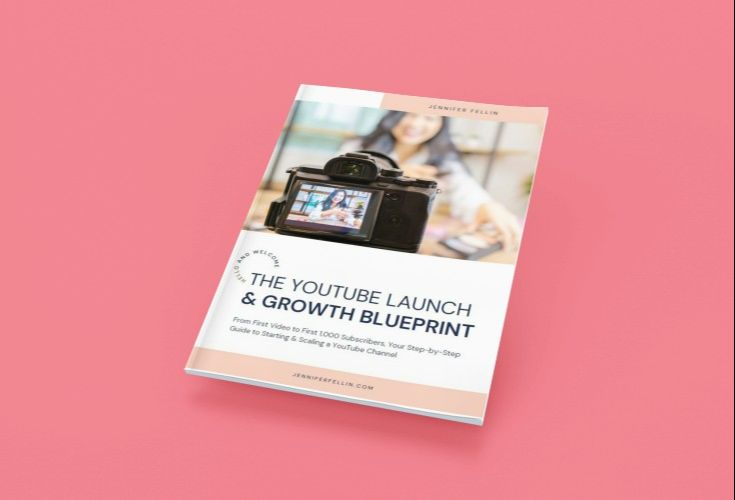What Are Your Strengths and Weaknesses? Understanding Yourself to Grow
Mar 02, 2025
In the journey of personal and professional development, one of the most common questions people face is, "What are your strengths and weaknesses?" Whether in job interviews, personal reflections, or career planning, understanding your strengths and weaknesses is essential for growth. This question not only helps others see how you perceive your abilities but also plays a significant role in your self-awareness, ultimately guiding you toward areas where you can shine and areas where you may need improvement.
In this article, we will explore how to identify your strengths and weaknesses, why this is important, and how to present them effectively. We'll also provide examples to help you recognize how you can apply these insights in your professional and personal life.
The Importance of Recognizing Your Strengths
Your strengths are the qualities or skills that you naturally excel at. These can be innate traits or acquired abilities that give you an advantage in various situations. Understanding your strengths helps you navigate your career and personal life with confidence. It enables you to focus on tasks that you can perform well and seek roles that align with your natural talents.
Examples of Common Strengths:
-
Communication: Some people have an innate ability to communicate clearly and persuasively. They excel at articulating ideas, whether in written or verbal form. This is a key strength for leaders, marketers, educators, and anyone in a role that requires regular interaction with others.
-
Problem-Solving: Individuals who possess strong problem-solving skills are able to assess challenges, break them down into manageable parts, and find effective solutions. This strength is essential in fields like engineering, project management, and research.
-
Creativity: A creative mind can think outside the box and approach problems from fresh perspectives. Whether in design, advertising, or the arts, creativity is a powerful strength that allows individuals to develop unique ideas.
-
Time Management: Being able to manage time efficiently is a strength that helps individuals juggle multiple responsibilities, meet deadlines, and maintain a balanced lifestyle. Professionals in fast-paced environments, like healthcare or technology, often thrive because of this skill.
Recognizing these strengths allows you to craft a career or life path that leverages what you do best. It also provides you with the confidence to take on challenges that align with your abilities.
Why It's Important to Know Your Strengths
Knowing your strengths can improve your productivity and career satisfaction. It allows you to delegate tasks more effectively, whether at work or at home. By leveraging your strengths, you can focus on roles and responsibilities where you are most likely to succeed, increasing your chances of success and fulfillment.
Moreover, knowing your strengths makes you more adaptable in unfamiliar or challenging situations. If you're aware of your key abilities, you can apply them in new environments, which may boost your overall performance and growth.
The Significance of Acknowledging Your Weaknesses
On the flip side, identifying and acknowledging your weaknesses is equally important for personal and professional development. Weaknesses are areas where you struggle, either because you lack certain skills, experience, or natural aptitude. The key here is not to shy away from these areas but to accept them as opportunities for growth and self-improvement.
Examples of Common Weaknesses:
-
Procrastination: Many people struggle with putting things off until the last minute. Procrastination is often linked to perfectionism, fear of failure, or a lack of motivation. While this is a common weakness, it can be addressed with better time management techniques and self-discipline.
-
Lack of Technical Skills: In an increasingly digital world, some individuals may struggle with technology. This could manifest in difficulty using software programs, managing social media, or learning new technical tools. Recognizing this weakness is crucial because it allows you to seek out training or education in areas where you may feel less confident.
-
Difficulty Saying No: Some individuals find it challenging to set boundaries, often saying "yes" to too many commitments. This can lead to burnout and overwhelm. Recognizing this weakness can help you learn how to prioritize and assert yourself more effectively.
-
Impatience: Impatience can manifest as frustration when things don't happen quickly or when others don't meet your expectations. While it can be a natural tendency for some, recognizing it as a weakness can prompt individuals to practice patience and empathy.
Acknowledging these weaknesses doesn't mean labeling yourself as incapable. It means recognizing areas where you may need additional skills or strategies to overcome obstacles. Embracing your weaknesses allows you to develop a growth mindset, turning challenges into opportunities for improvement.
Why It's Important to Know Your Weaknesses
Being aware of your weaknesses allows you to take proactive steps to improve them. Instead of avoiding difficult situations, you can seek training, mentorship, or support to overcome these challenges. This not only benefits your career but also helps you grow personally, building resilience and adaptability in the face of adversity.
Additionally, understanding your weaknesses can make you more empathetic toward others. You may be better equipped to recognize the struggles that others face, which can foster collaboration and a supportive work environment.
How to Identify Your Strengths and Weaknesses
The process of identifying your strengths and weaknesses can be challenging, but it's an essential step toward self-improvement. Here are some effective strategies to help you pinpoint these areas:
1. Self-Reflection
Take some time to reflect on your past experiences, achievements, and challenges. Ask yourself questions like:
- What tasks do I naturally excel at?
- When have I received the most positive feedback?
- What activities do I find enjoyable or fulfilling?
Similarly, consider past difficulties:
- When have I struggled or felt overwhelmed?
- Are there patterns in the tasks that I tend to avoid?
- What are the areas where I feel less confident?
2. Seek Feedback
Ask colleagues, friends, mentors, or supervisors for their insights. Others often notice strengths and weaknesses that we might overlook about ourselves. Constructive feedback is invaluable for identifying areas where you may need to improve or areas where you could further leverage your talents.
3. Take a Personality or Strengths Assessment
There are many tools available to help you assess your strengths and weaknesses. Tools like the Gallup StrengthsFinder, Myers-Briggs Type Indicator (MBTI), or the VIA Survey of Character Strengths can provide you with a more objective perspective on your natural traits and tendencies.
4. Observe Your Responses to Stress
Notice how you behave in stressful situations. Stress often brings out both our strengths and weaknesses, as we tend to rely on our go-to coping mechanisms. Pay attention to how you react under pressure to better understand where your strengths and vulnerabilities lie.
How to Present Your Strengths and Weaknesses
In a professional setting, such as an interview or performance review, how you present your strengths and weaknesses is crucial. Here's how you can approach this topic:
Presenting Your Strengths:
- Be Specific: Instead of saying "I'm a good communicator," provide examples of situations where your communication skills made a difference. For example, "I led a team presentation that resulted in a 20% increase in client satisfaction due to clear and persuasive communication."
- Be Humble: While it's important to highlight your strengths, avoid coming across as arrogant. Acknowledge that you continue to work on developing these skills further.
Presenting Your Weaknesses:
- Be Honest but Constructive: Focus on how you're actively working to address your weaknesses. For instance, "I used to struggle with time management, but I’ve implemented a new scheduling system that has helped me stay on track."
- Show Growth: Share how you’ve learned from your weaknesses and the steps you've taken to improve. This demonstrates self-awareness and a commitment to personal development.
Conclusion: Embrace Growth
Understanding your strengths and weaknesses is a powerful tool for self-awareness. By identifying what you excel at and where you need improvement, you can make smarter decisions about your career, relationships, and personal growth. The key is to embrace both your strengths and weaknesses as opportunities for development.
By actively working to refine your strengths and addressing your weaknesses, you can build a more fulfilling life, both personally and professionally. Remember, it's not about being perfect but about continuous improvement and learning. Through self-awareness, feedback, and persistence, you can unlock your full potential and achieve greater success.









